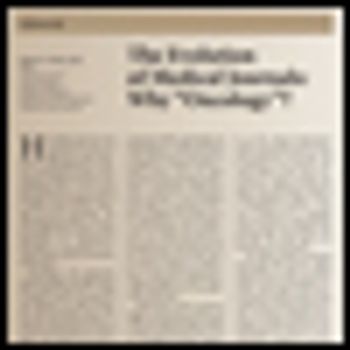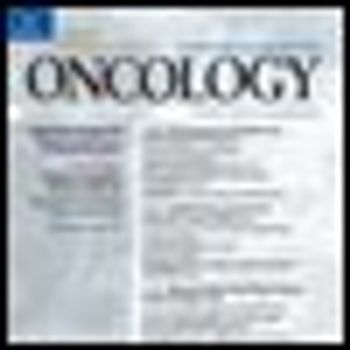
DOGE hopes to solve rampant inefficiencies in US healthcare that contribute to unsustainable costs and a broken system by cutting spending and administrative waste.

Your AI-Trained Oncology Knowledge Connection!


DOGE hopes to solve rampant inefficiencies in US healthcare that contribute to unsustainable costs and a broken system by cutting spending and administrative waste.

Identifying inefficiencies in the health care system, such as excessive regulations, highlights its impact on the oncology-based audience.

In a recent Hot Topics article, reimbursement rates for Medicare physicians are discussed, and how it will impact their practice.

Nora Janjan, MD, MPSA, MBA, spoke with CancerNetwork® about the latest perspective from the journal ONCOLOGY® on how roles and responsibilities of academic clinicians in reporting of conflicts of interest influence oncology research.

Nora Janjan, MD, MPSA, MBA, gives her perspective on oncology drug development through academic promotion, as an accompaniment to the article titled "Association of Financial Conflicts of Interest With Academic Productivity Among Junior Faculty in Hematology and Oncology" published in the journal ONCOLOGY.

Most patients with advanced cancer, and up to 60% of patients with any stage of the disease, experience significant pain. The WHO estimates that 25% of all cancer patients die with unrelieved pain.

American medicine is poised for an expanded conflict over the assumption and consequences of risk in medical care.

The Hippocratic Oath underscores that harm to patients can result either from acts of commission or omission. Decisions about the use of diagnostic imaging are now under great scrutiny.

Only the possibility of increasing survival with better tumor localization and staging is probable with multiparametric MRI-and improved survival with MR imaging in prostate cancer has not been shown in a clinical trial or meta-analysis to date.

To insure standardization of all aspects of care during the conduct of a clinical trial, clinical trials should include guideline-based criteria for the management of all symptoms of cancer and its treatment, and failure to adhere to any of the standards for symptom management during the conduct of the trial should result in an equal level of protocol violation.

This will have a significant impact on medicine and on the care we will be able to deliver. It has life and death implications. The patients of America, who have enjoyed the best healthcare in the world, have lost.

While ONCOLOGY has continued to evolve along with the field of oncology-for example, it now addresses critical issues of science and socioeconomics-it has remained true to the founding principles. Perhaps largely for this reason, the journal continues to be widely read across the entire oncology community.

Palliative care addresses the symptoms of cancer throughout the course of the disease. Moreover, rather than just improving end-of-life care, palliative care also improves survival.

The practice of radiation oncology has been transformed over the past quarter-century in three significant aspects.

This special supplement to Oncology News International comprises expertcommentary and selected reports from the 2004 meetings of RSNA andASTRO about new imaging techniques, with a focus on state-of-the-art magneticresonance imaging, positron emission tomography, computed tomography,and complementary modalities for improving the diagnosis, staging, andtreatment of a variety of cancers. Evident in these reports is the increasingcollaboration between the specialties of radiation oncology and diagnosticradiology as imaging technology continues to evolve.

The use of combined modality regimens has been well established in the treatment of stages II and III rectal cancer. The most common chemotherapy regimens used include continuous-infusion 5-FU delivered with the help of a central venous catheter and the use of portable pumps.

Protracted infusions of 5-fluorouracil (5-FU) combined with pelvic radiotherapy have been associated with improved survival and decreased local and distant metastases in the adjuvant therapy of rectal cancer. However,

Published: February 18th 2022 | Updated:

Published: March 8th 2024 | Updated:

Published: February 21st 2025 | Updated:

Published: February 1st 2005 | Updated:

Published: June 29th 2012 | Updated:

Published: July 1st 1999 | Updated: